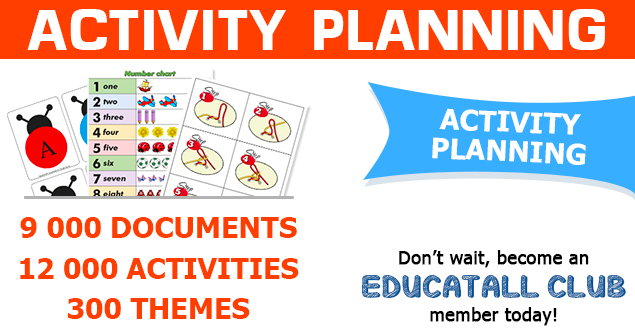
The shock associated with a diagnosis
Chances are that receiving a diagnosis for your own child or a child in your daycare group will provoke its fair share of shock. You may not have seen it coming. You need time to absorb the news and learn to live with it. Most of all, you need to adapt to the diagnosis. I have seen firsthand how it can be difficult for early childhood educators to deal with a diagnosis. We all have our own way of reacting to this type of news, but it is always important to focus on the child. Our interventions must foster the child’s well-being. In this article, you will find a list of the “key” steps that, in my humble opinion, must be respected.
Step 1
Take time to accept the diagnosis. Take a step back. Receiving a diagnosis can be shocking. Take time to let the announcement sink in. Respect your emotions and let them surface. Remember that there can be many stages between the announcement of a diagnosis and its acceptance: shock/denial, anger, bargaining, depression/sadness, resignation, acceptance…and reconstruction. These steps are possible, but not necessarily unavoidable. If you are in shock, it’s normal. Let yourself feel whatever emotion the diagnosis causes before moving on.
Step 2
In this situation, parents are your main allies. They are the ones who will provide information about the diagnosis. They are your gateway to the various professionals who are working with their child, to their recommendations. In such circumstances, it is very important that you collaborate. You may need to schedule a formal meeting. Take the time to examine the situation from every angle together.
Step 3
Ask questions and read about the child’s diagnosis. Know the details and make sure you are aware of all recommended interventions. Contact the professionals who are working with the child. You must understand the diagnosis to adapt your interventions.
Step 4
You are now ready to adapt to the diagnosis and modify certain interventions if needed. You may even have to physically adapt your daycare. Trust the recommendations made by the professionals who are working with child. The intervention plans they provide can be very helpful. Your coordinating bureau can also provide valuable insight. Do not hesitate to ask your pedagogical advisor to assist you. Don’t try to do everything at the same time. Focus on your priorities to begin with. Gradually adapt to the diagnosis. Both you and the child will be more comfortable implementing the necessary changes one at a time.
I must also mention that you may be eligible to receive an allowance for the integration of a disabled child. This allowance can supplement the basic allowance normally available for a child under the age of 60 months (in Quebec) for a child whose disability has been confirmed by a professional. Various contexts can give you access to this allowance. A professional must evaluate the child and request the allowance. This allowance can, for example, help you adapt your environment and support specific interventions. Your coordinating bureau can provide further information about this allowance.
Maude Dubé, Specialized educator

 Home
Home Theme activities
Theme activities
 Babies and toddlers
Babies and toddlers
 Arts and crafts
Arts and crafts
 Science
Science
 Creative recipes
Creative recipes
 Tips and tricks
Tips and tricks
 Special needs
Special needs
 Extra activities
Extra activities
 Educ-TV
Educ-TV
 Newsletter
Newsletter  Online store
Online store Educatall club
Educatall club

